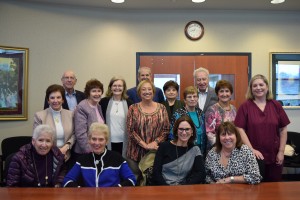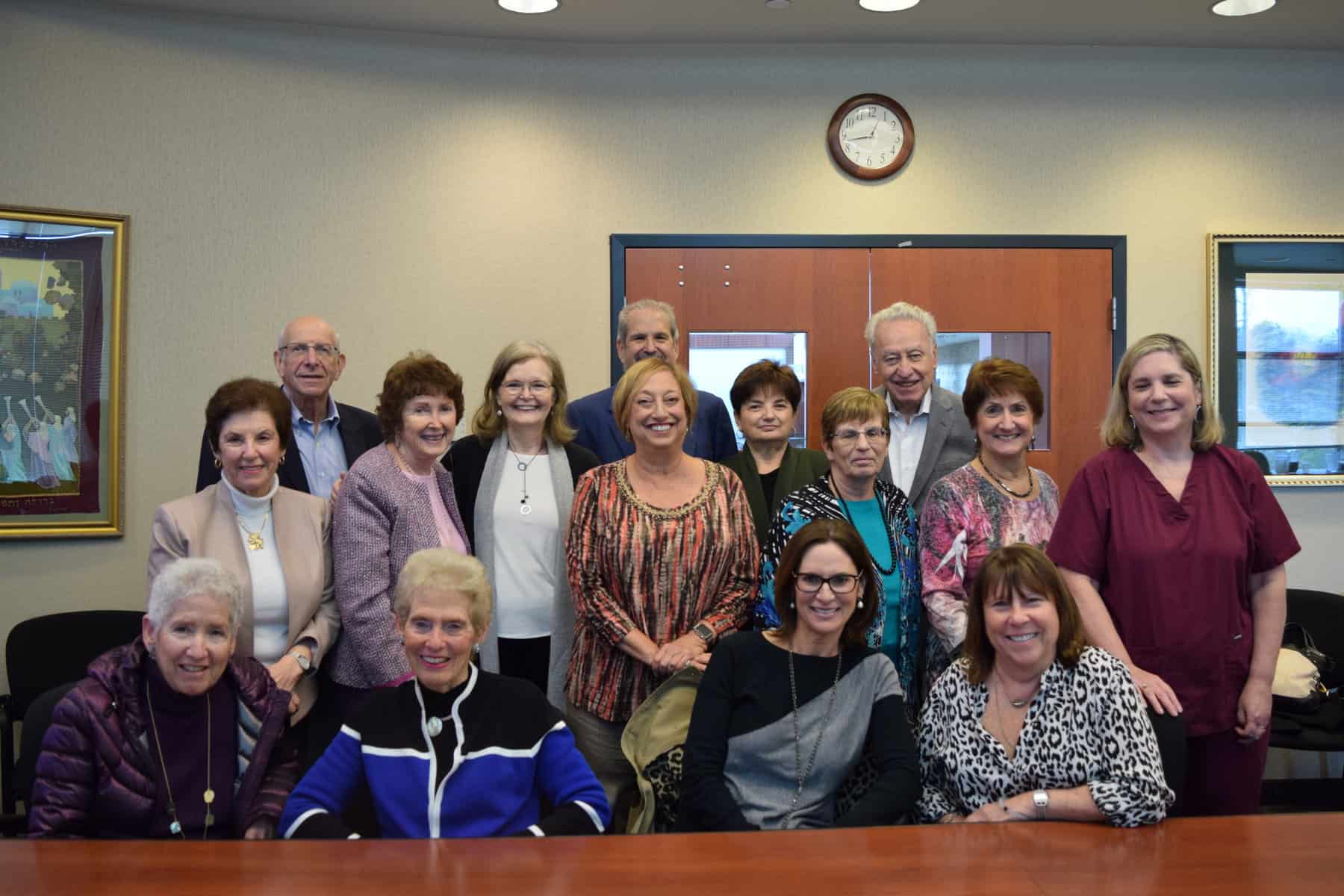
Seated: Mimi Karesh, Dolores Bartel, Jodi Klebanoff, and Lynn Schoenbaum. Standing: Miriam Seeherman, Aaron Trub, Marcia Goldsticker, Sara Trüb, Harry Nadler, Linda Spindel, Joy Spigel, Doreen Berger, Sam Werbel, Linda Longman, and Abbie Laderberg.
The local chapter of ORT, a Jewish organization devoted to education, held its annual spring lunch last month at the Sandler Family Campus.
The event’s special guest was Harry Nadler, North American representative for World ORT, the international non-governmental organization which provides educational and vocational training programs in Israel and other nations around the globe.
Nadler regularly visits Tidewater to provide updates to the ORT chapter and other interested Jewish community members. His conversation this year included reports about new World ORT initiatives that are proving successful, the requests from the Israeli government to partner or take over some struggling schools, and to express a tremendous “thank you.”
“World ORT’s educational programs in Israel and around the world are helping thousands of disadvantaged children,” said Nadler. “And this Jewish community is one of the largest supporters of World ORT– you all are to be thanked for what you do for Jews worldwide.”
Linda Spindel, co-chair of the United Jewish Federation of Tidewater’s Israel and Overseas Committee, attended the lunch, and says she is grateful to both ORT and to donors who have made gifts to the UJFT’s 2016 Annual Campaign. ORT receives allocations from the UJFT that help the non-profit close the gap between the kids in Israel’s socioeconomic middle, and those in poorer communities, who are said to be “on the periphery.”
Highlights of Nadler’s discussion included a report about World ORT’s new and highly successful program to train Israelis to work in the natural gas fields discovered off the country’s coast last year. He also discussed the gemology vocational training provided to new Ethiopian aliyot (new Israeli citizens) and computer technician training for Haredim (ultra-orthodox Israelis), who have very little formal education.
Nadler raised the exciting possibilities of what schools with disadvantaged students may soon have available to them in places such as Kiryat Yam, an Israeli city that has close ties with Tridewater.
“Our new projects are integrating and installing future learning spaces, which are the next phase of smart boards,” Nadler said, referring to the classroom white boards that combine a traditional whiteboard with modern technology. “In these spaces, students and teachers can write on the windows, all tables are touch screens—it will be like working in a research environment. It’s an improved way of teaching, and learning.”

